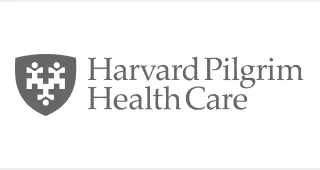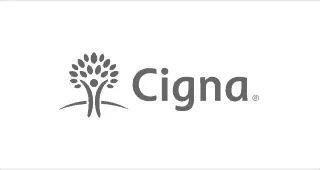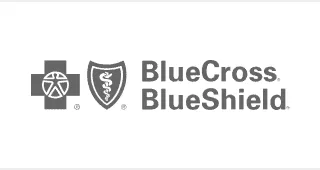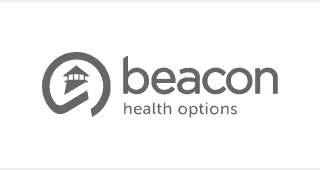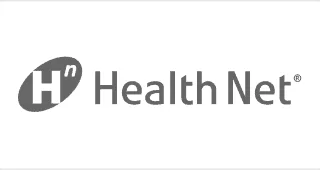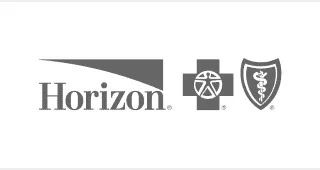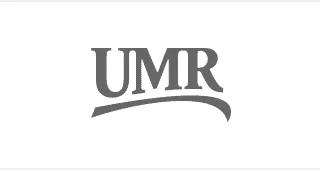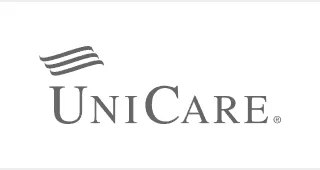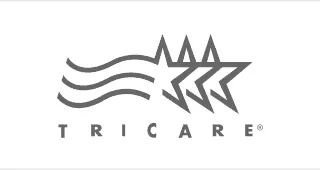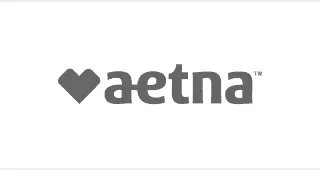Understanding Alcohol Addiction
Alcohol addiction, also known as alcoholism, alcohol use disorder (AUD), and alcohol dependence, is a medical condition characterized by the compulsive and uncontrollable consumption of alcohol. It is a complex disease that affects individuals physically, psychologically, and socially. Most people with alcohol use disorders are unable to stop drinking without outside help.
Why is Getting Treatment for Alcohol Addiction So Important?
Alcohol treatment greatly improves a person’s chances of not only getting sober—but staying sober long-term. Addiction, including alcohol addiction, is a chronic illness. It cannot be cured today, but it can be managed.
A good, dual-diagnosis addiction treatment program can help you better understand addiction and yourself. You will learn to identify triggers and change unhelpful and unhealthy thinking patterns holding you back.
Most importantly, alcoholism treatment can break the cycle of addiction and free you from the punishment alcohol abuse does to your mind and body. Most people who finally enter alcohol treatment in NJ end up wishing they had done it sooner.
In fact, we have yet to meet anyone who wished they had not received help. We don’t tell you that recovery from alcohol addiction is easy—it isn’t. But, it may be one of the best gifts you ever give yourself and those who love you.
Do I Have Alcoholism?
People who are addicted to alcohol have intense cravings for alcohol and struggle to control their drinking. They may continue to drink alcohol despite negative consequences, like hangovers, DUIs, problems at work, relationship problems, and health issues. Alcohol addiction is also usually characterized by a tolerance to alcohol and withdrawal symptoms when alcohol is removed.
Having a tolerance to alcohol means the person will need to drink an increasing amount to achieve the same effect. Alcohol withdrawal occurs when a person who is dependent on alcohol stops drinking for a period of time and experiences symptoms. Symptoms may begin within 24-48 hours or less, depending on how severe the person’s alcohol addiction is.
Symptoms of alcohol withdrawal include:
- Headache
- Anxiety or nervousness
- Insomnia
- Excessive sweating
- Upset stomach or nausea
- Heart palpitations
- Increased blood pressure
- Increased heart rate
- Hyperthermia (high body temperature)
- Tremors (shakiness) of hands or other body parts
- Confusion
- Hallucinations
- Seizures
- Delirium (severe confusion and agitation)
The severity and onset of alcohol withdrawal symptoms depend on several factors, including:
- Amount and duration of alcohol use
- Overall health and nutritional status
- Physical age and genetics
- Presence of underlying medical or mental health conditions
- History of previous withdrawal episodes
- History of seizures
Still not sure if alcohol is a problem for you or the person you love? Take our alcohol addiction self-quiz here:
Am I an Alcoholic? – Questions To Ask Yourself
NOTE: Alcohol Withdrawal is Dangerous and Potentially Fatal
A person who is addicted to alcohol must not stop drinking suddenly. This is VERY important. Without medical support, alcohol withdrawal symptoms can be dangerous and even deadly. The safest way to stop drinking and enter sobriety is to begin with placement in an alcohol detox in NJ.
If you or someone you know needs an alcohol detox in NJ, call Achieve Wellness and Recovery at (833) 680-0142 for assistance. If the person is already experiencing severe withdrawal symptoms, seek immediate medical help by either taking them to a hospital or calling 911. Do not take chances with alcohol withdrawal. It can be deadly.
About Alcohol Addiction Treatment in NJ
Comprehensive alcohol treatment in NJ involves a combination of approaches, including detox, mental health therapy, 12-step group participation (such as Alcoholics Anonymous), and sometimes medication. Following placement in a medical detox in NJ, alcohol treatment consists of several phases of treatment.
Different levels of treatment intensity are denoted by what are called levels of care, which are defined by the American Society of Addiction Medicine (ASAM). It’s not important to understand the exact details of all the levels of care, but it’s helpful to know they exist and are a part of alcoholism treatment in NJ and throughout the U.S.
After an inpatient medical detox, most patients move on to either residential inpatient treatment (if they require 24/7 medical supervision) or what is called a Partial Hospitalization Program or PHP.
Are you anxious or worried about going to treatment for alcohol addiction? Check out this article:
Alcohol Addiction Treatment at Achieve Wellness and Recovery
Achieve Wellness and Recovery’s dual-diagnosis alcohol addiction treatment model is based on evidence-based care principles. We incorporate proven mental health therapy approaches, addiction education, and practical tools for maintaining long-term sobriety. Our mission has always been to help people build a solid foundation that allows them to continue their growth and progress long after their time with us.
Inpatient Alcohol Detox Placement:
Achieve Wellness and Recovery arranges a safe and comfortable medical detox from alcohol and any other substances at a dedicated local medical detox partner program. This initial phase of treatment is designed to get a person safely detoxed off of alcohol and past any physical withdrawal symptoms so they are medically ready to begin our partial program.
Partial Hospitalzation Program:
Our Partial Hospitalization Program, or PHP, is where intensive mental health therapy and counseling begins. Treatment in our PHP incorporates several hours daily, up to 5 days a week. Each person attending our alcohol PHP receives a personalized treatment plan based on their individual assessment.
Treatment will include a combination of individual (one-on-one) mental health therapy, group therapy, and specialized treatment for other conditions, such as trauma, anger, grief and loss, and so on. A significant portion of treatment in our NJ PHP addresses addiction education, where clients learn how to identify triggers to drink and how to counteract unhelpful thoughts and behavior patterns.
Intensive Outpatient Program
The Intensive Outpatient Program (IOP) at Achieve Wellness and Recovery is the next step following the completion of the PHP portion of alcohol treatment. Our Intensive Outpatient Program bridges residential or PHP treatment and traditional outpatient care, which usually consists of 1-2 sessions per month.
IOP offers a higher level of support and therapy compared to these standard outpatient services while allowing newly recovering people to put their new recovery to the test in the real world. Because IOP sessions are 2-3 hours, three times a week, they are compatible with almost anyone’s lifestyle. Many people are even able to return to work, school, or family responsibilities while attending our NJ IOP for alcoholism if they choose.
Standard Outpatient Treatment
Standard outpatient treatment for alcoholism is the least intensive option. Standard OP is best for people with very mild substance use disorders or (more often) those transitioning from a higher level of care, like IOP or PHP.
Standard OP treatment includes individual and group therapy sessions that occur less frequently, usually once or twice weekly. This allows individuals to maintain their everyday responsibilities while remaining connected to therapeutic resources to support their ongoing recovery.
Stats and Data About Alcohol Addiction in New Jersey
New Jersey has been impacted more by alcoholism and addiction to other substances than many states. As a result, the NJ Department of Health has been proactive in not only gathering data about alcohol addiction and drug use in our state but also supporting prevention and intervention efforts targeted at improving public health.
Here are just a few eye-opening stats about alcohol addiction and treatment in NJ:
- More than 30,000 people were admitted for alcohol treatment in New Jersey in 2022. That’s roughly equivalent to the entire population of Galloway, NJ.
- Over 25% of NJ men 18-34 years old report regular binge drinking (5+ drinks)*
- About 19% of NJ females 18-34 report regular binge drinking (4+ drinks)*
- The NJ counties with the most binge drinking include Cape May, Cumberland, Gloucester, Camden, and Atlantic County, NJ
SOURCE: New Jersey State Health Assessment Data, NJ Department of Health
*Binge drinking as defined by the National Institute on Alcohol Abuse and Alcoholism (NIAAA)
Treating Alcohol Addiction with Compassion
At Achieve Wellness and Recovery in New Jersey, we offer comprehensive alcohol addiction treatment programs designed to treat alcohol abuse and dependence. Treatment at our center begins with a thorough assessment to understand the specific challenges and underlying factors contributing to alcohol addiction.
Based on this assessment, our experienced team of addiction specialists and health professionals develop a personalized treatment plan that addresses the physical, emotional, and psychological aspects of alcohol use disorders. If you or a loved one are ready to stop drinking and seek treatment for an alcohol use disorder, contact us today by calling (833) 680-0142.
Achieve Wellness and Recovery: Overcome Alcoholism
Since we opened our doors, we have committed to delivering the most effective alcohol addiction treatment in New Jersey. This means never sitting still. We continually adapt and improve our evidence-based addiction treatment based on new research and, more importantly, the success we witness among the people we help in our NJ treatment program.
If you or a person you love is struggling with addiction, we’re here to listen and help. Most of us have either firsthand experience with addiction and mental health or family members who do. For us, this is more than just a job—-it’s a calling. We’re ready to help when you’re ready to call.
Reach Achieve Wellness and Recovery at (833) 680-0142
Click here to learn how our New Jersey drug rehab can work with your insurance.
We work with most insurance companies. Please note we are not affiliated with or endorsed by any insurance company.
We work with most insurance companies. Please note we are not affiliated with or endorsed by insurance companies.
No Medicaid Accepted.




